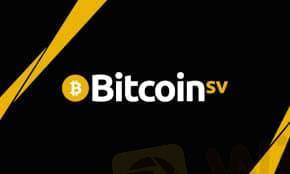
2025-02-06 06:48
IndustriyaBitcoin SV: Economic Study and Controversies
#Firstdealofthenewyearastylz
Bitcoin SV (BSV) emerged in 2018 as a hard fork of Bitcoin Cash (BCH), positioning itself as the true realization of Satoshi Nakamoto’s vision. Advocates claim it offers superior scalability and lower transaction costs, making it an ideal medium for economic transactions and business adoption. However, BSV has faced significant controversies, including centralization concerns, leadership disputes, and allegations of misinformation. This article explores the economic implications of BSV, its market performance, adoption rates, and the controversies that have shaped its trajectory.
Bitcoin SV (Satoshi Vision) was created in November 2018 after a contentious hard fork from Bitcoin Cash (BCH), which itself forked from Bitcoin (BTC) in 2017. The primary goal of BSV is to restore what proponents consider the original Bitcoin protocol, emphasizing unlimited block sizes and on-chain scaling to support enterprise adoption. However, the project has been plagued by disputes over governance, credibility, and centralization.
Economic Analysis of Bitcoin SV
Scalability and Transaction Fees
BSV's defining feature is its larger block size, theoretically allowing for lower fees and higher transaction throughput compared to BTC and BCH. Supporters argue this makes it more viable for microtransactions, business applications, and smart contracts. However, skeptics note that large block sizes may lead to increased centralization, as only entities with substantial computational power can efficiently validate transactions.
Market Performance and Adoption
Since its inception, BSV has struggled to gain significant adoption compared to BTC and ETH. While its market capitalization initially reached billions, it has seen declining liquidity and delistings from major exchanges like Binance and Kraken, reducing its accessibility. Despite this, some businesses and applications continue to use BSV for its fast transactions and low fees.
Institutional and Business Adoption
BSV proponents, particularly those associated with nChain and Craig Wright, have sought enterprise adoption through partnerships in data integrity, supply chain management, and payments. However, skepticism from major financial institutions has limited its mainstream appeal.
Katulad 0

Evelyn6332
Mga broker
Mainit na nilalaman
Pagsusuri ng merkado
Dogecoin cheers coinbase listing as Bitcoin’s range play continues
Pagsusuri ng merkado
Grayscale commits to converting GBTC into Bitcoin ETF:
Pagsusuri ng merkado
Bitcoin's price is not the only number going up
Pagsusuri ng merkado
Theta Price Prediction:
Pagsusuri ng merkado
How to Research Stocks:
Pagsusuri ng merkado
Bitcoin (BTC), Ethereum (ETH) Forecast:
Kategorya ng forum

Plataporma

Eksibisyon

Ahente

pangangalap

EA

Industriya

Merkado

talatuntunan
Bitcoin SV: Economic Study and Controversies
 Hong Kong | 2025-02-06 06:48
Hong Kong | 2025-02-06 06:48#Firstdealofthenewyearastylz
Bitcoin SV (BSV) emerged in 2018 as a hard fork of Bitcoin Cash (BCH), positioning itself as the true realization of Satoshi Nakamoto’s vision. Advocates claim it offers superior scalability and lower transaction costs, making it an ideal medium for economic transactions and business adoption. However, BSV has faced significant controversies, including centralization concerns, leadership disputes, and allegations of misinformation. This article explores the economic implications of BSV, its market performance, adoption rates, and the controversies that have shaped its trajectory.
Bitcoin SV (Satoshi Vision) was created in November 2018 after a contentious hard fork from Bitcoin Cash (BCH), which itself forked from Bitcoin (BTC) in 2017. The primary goal of BSV is to restore what proponents consider the original Bitcoin protocol, emphasizing unlimited block sizes and on-chain scaling to support enterprise adoption. However, the project has been plagued by disputes over governance, credibility, and centralization.
Economic Analysis of Bitcoin SV
Scalability and Transaction Fees
BSV's defining feature is its larger block size, theoretically allowing for lower fees and higher transaction throughput compared to BTC and BCH. Supporters argue this makes it more viable for microtransactions, business applications, and smart contracts. However, skeptics note that large block sizes may lead to increased centralization, as only entities with substantial computational power can efficiently validate transactions.
Market Performance and Adoption
Since its inception, BSV has struggled to gain significant adoption compared to BTC and ETH. While its market capitalization initially reached billions, it has seen declining liquidity and delistings from major exchanges like Binance and Kraken, reducing its accessibility. Despite this, some businesses and applications continue to use BSV for its fast transactions and low fees.
Institutional and Business Adoption
BSV proponents, particularly those associated with nChain and Craig Wright, have sought enterprise adoption through partnerships in data integrity, supply chain management, and payments. However, skepticism from major financial institutions has limited its mainstream appeal.
Katulad 0
Gusto kong magkomento din
Ipasa
0Mga komento

Wala pang komento. Gawin ang una.

Ipasa
Wala pang komento. Gawin ang una.